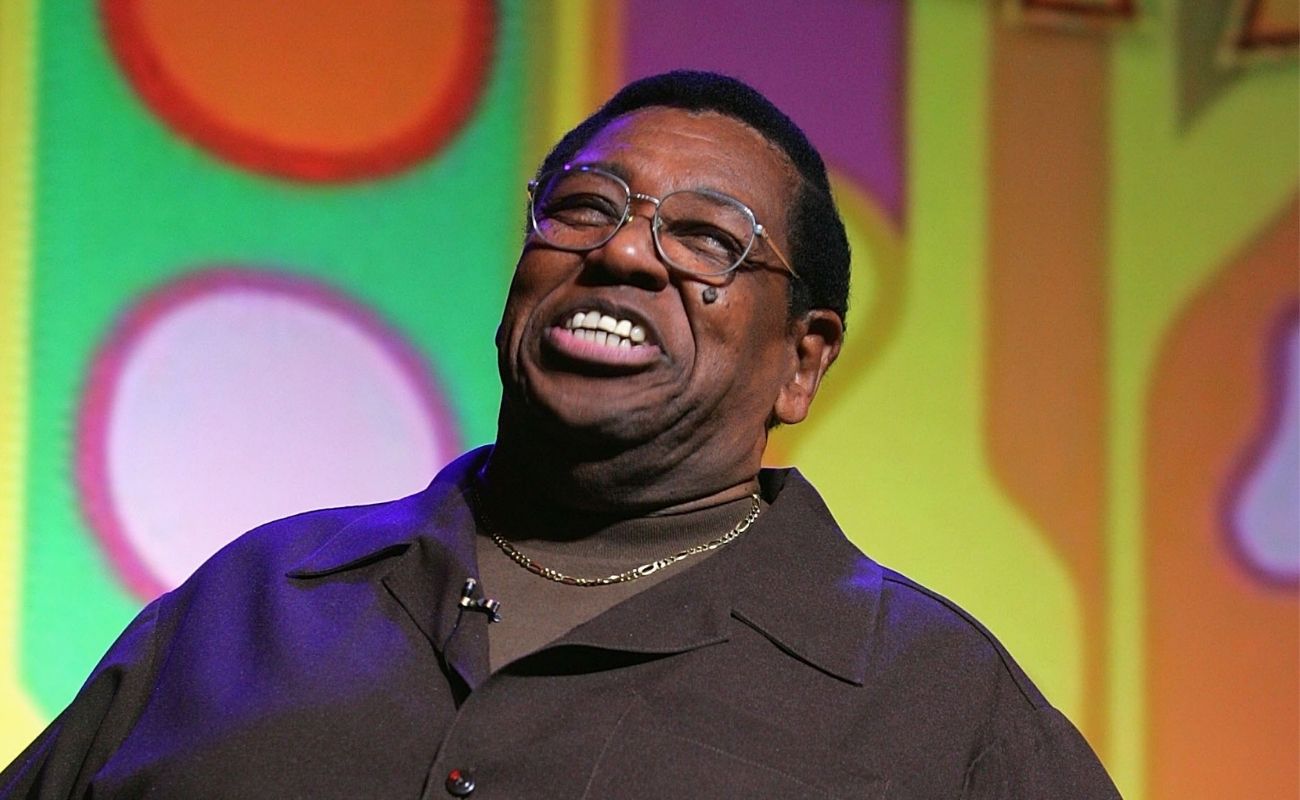Johnny Brown, the easygoing actor, comedian, and singer best known for portraying the housing project superintendent Nathan Bookman on Good Times, has died. He was 84.
Brown died Wednesday, his daughter, actress Sharon Catherine Brown, announced on Instagram. “Our family is devastated. Devastated. Devastated. Beyond heartbroken. Barely able to breathe,” she wrote.
Further details of his death were not immediately available.
Brown also recorded songs and performed in a band with saxophonist Sam “The Man” Taylor, appeared twice on Broadway in the 1960s and was a regular performer for three seasons on Rowan & Martin’s Laugh-In.
Brown, who did a mean impression of Louis Armstrong and others, was a leading contender to play Lamont opposite Redd Foxx on Sanford and Son, but because his contract bound him to Laugh-In, the role went to Demond Wilson.
With former Laugh-In writer Allan Manings serving as a producer on Good Times, Brown joined the Chicago-set CBS comedy in 1975 midway through its second season. His character was often teased about his weight by the gangly J.J. (Jimmie Walker) and other members of the Evans family.
“Sometimes you can do too much of a thing, and it doesn’t come natural,” Brown said in 2019. “With everybody [calling Bookman] ‘buffalo butt’ in a scene, it loses something. … They even had Janet [Jackson], who had just come on the show, answering like Mr. Buffalo Butt.
“And they used it in every show. They used it when I walked in the show, all through the scene. When I left the scene, they used it. I couldn’t say anything because I have a wife and two kids to support. Now at my age, I would have to say something.”
Brown was born on June 11, 1937, in St. Petersburg, Florida, and raised in Harlem. He won an amateur night competition at the Apollo Theater; starred in nightclub acts with his future wife, June, and with tap dancer Gregory Hines Jr. and drummer Gregory Hines Sr.; and recorded songs for Columbia and Atlantic records.
While working in the Catskills, Brown met Sammy Davis Jr., and the legendary entertainer would prove to be an inspiration. “He did all the things I wanted to do,” Brown said in a 1996 interview. “I wanted to be a well-rounded, complete entertainer; I didn’t just want to sing or tell a joke.”
In 1964, when Davis was preparing to star in a musical adaptation of Golden Boy on Broadway, he got Brown a gig as Godfrey Cambridge’s understudy. (Brown said he had never even seen a Broadway show before that.)
But then Cambridge began bickering with director Arthur Penn. “In those days, a big thing for a comedian was an album. Like Bill Cosby and Richard Pryor and those guys, if an album sold, they could make big concert money,” Brown said. Cambridge couldn’t “get out of a contract, so he started arguing every day until two days before opening for previews.”
That’s when Cambridge was fired. Brown took over as Ronnie and took the lead on the show-stopping number “Don’t Forget 127th Street” as Golden Boy lasted more than 500 performances.
Brown made his film debut portraying a blind pianist in the Davis-starring drama A Man Called Adam (1966) — future Good Times co-star Ja’Net DuBois also was in that — and returned to Broadway in 1968 for Carry Me Back to Morningside Heights, directed by Sidney Poitier. Despite a cast that featured Cicely Tyson, Diane Ladd, Louis Gossett Jr., and David Steinberg, the comedy lasted but a week.
He came to Los Angeles when Neil Simon asked him to play a waiter on a train in The Out of Towners (1970). While in town, he met influential CBS casting director Ethel Winant, “and by the time I got back to New York, I had a series” — The Leslie Uggams Show.
Brown was on Laugh-In for a year before he learned why he was hired for that. Davis “had dinner with [Dan] Rowan and [Dick] Martin,” he recalled. “They were looking for new faces, and Sammy, without batting an eye, said, ‘Get Johnny Brown.’”
Brown also was a welcome sight on shows including Julia, Maude, The Rookies, Lotsa Luck!, The Jeffersons, Archie Bunker’s Place, Family Matters, Sister, Sister, Moonlighting and Martin and in such films as The Wiz (1978), Poitier’s Hanky Panky (1982), Life (1999), and Town & Country (2001).
He also pitched Write Brothers pens (“Write on brothers, write on!”) in a series of musical commercials for Papermate in the early 1970s and starred in The Gospel Truth, which played on stages around the country in the late ’80s.
In addition to his daughter and his wife of 61 years, survivors include his son, John Jr.
Source: TheHollywoodReporter







